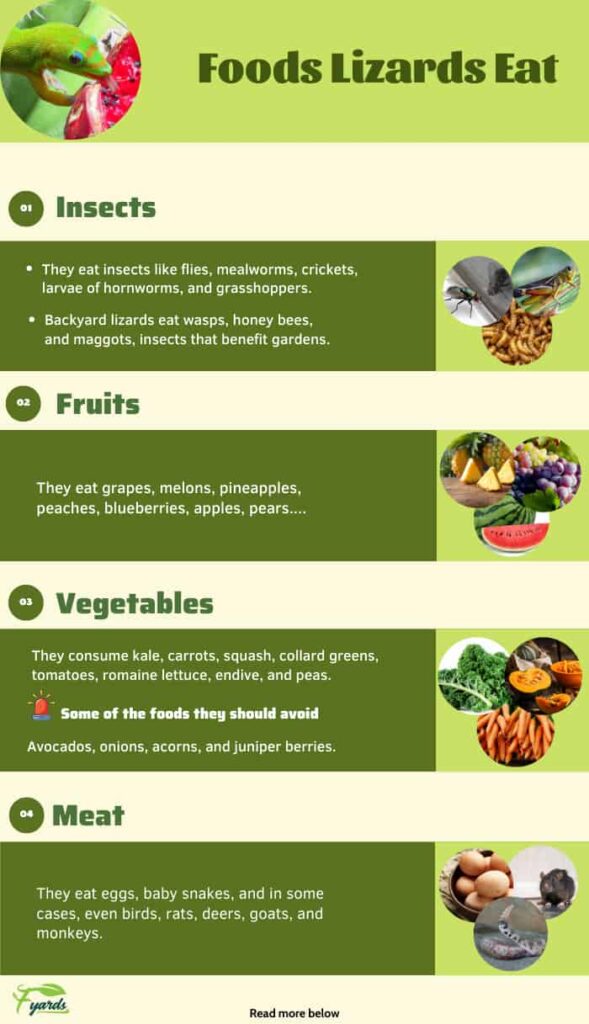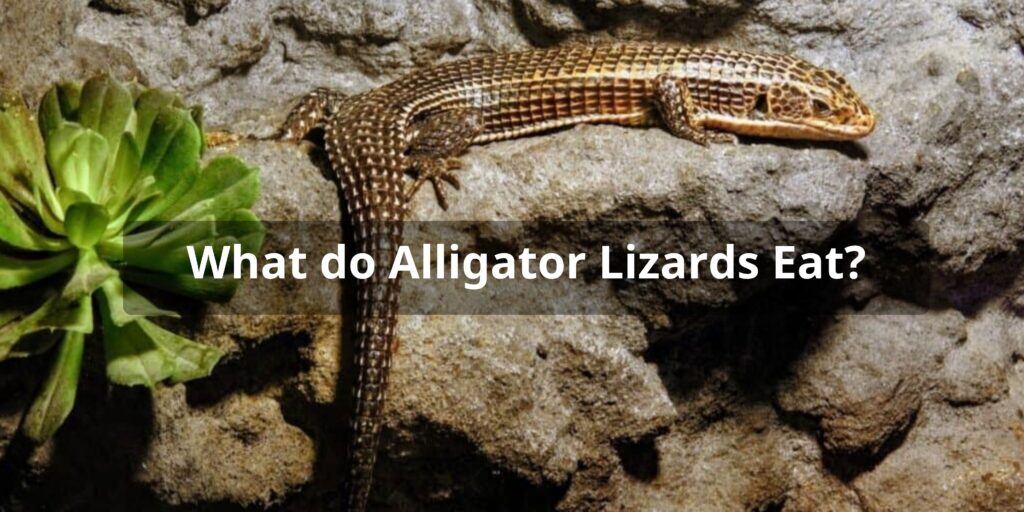Common lizards are fascinating creatures that can make great pets. However, to keep these lizards healthy and happy, it is essential to understand their dietary needs. In this article, we will discuss the basics of the Common Lizard diet, including their preferred food options, feeding guidelines, hydration needs, and more.
Common Lizard Diet Basics
It is important to understand the insect to plant food ratio and feeding frequency for common lizards based on their age to ensure a balanced diet.
- Baby Common Lizard: Around three-quarters of their diet should consist of insects, and the remaining quarter can be made up of plants.
- Adult Common Lizard: Half of their diet should consist of insects, and the other half should consist of plants.
Additionally, it is recommended to feed your Common Lizard once every day in small portions.
Essential Foods for Common Lizard Diet

Common Lizards are omnivores, which means they eat both animal and plant-based foods. Here are some essential food options for a Common Lizard:
Preferred Live Food Options
- Crickets
- Mealworms
- Waxworms
- Locusts
- Silkworms
- Butterworms
These live food options provide protein and other essential nutrients for a Common Lizard’s diet.
Safe Vegetables for Regular Intake
- Carrots
- Broccoli
- Turnips
- Watercress
- Spinach
- Kale
- Collard greens
These vegetables are high in fiber and vitamins and help maintain a healthy digestive system.
Recommended Fruits for Common Lizard Diet
- Berries (strawberries, blueberries, raspberries)
- Apples
- Pears
- Grapes
- Mangoes
- Melons
Fruits are a great source of vitamins and minerals essential for a Common Lizard’s diet. However, it is recommended to feed them in moderation due to the high sugar content.
Essential Vitamins & Minerals
Common Lizards require certain vitamins and minerals in their diet to ensure they stay healthy. Here are some essential nutrients and the foods that provide them:
- Calcium: Leafy greens, kale, broccoli, and other vegetables
- Vitamin D3: Natural sunlight exposure, UVB lighting, calcium supplements
- Vitamin A: Carrots, sweet potatoes, spinach, and other vegetables
Foods to Avoid for Common Lizard Diet
While Common Lizards can eat many different types of food, there are some things to avoid, including:
- Citrus fruits (can cause digestive issues)
- Avocado (toxic to lizards)
- Tomatoes (high acid content can cause digestive issues)
- Dairy products (lizards cannot digest lactose)
- Bread (low nutritional value, can cause digestive issues)
Feeding Guidelines for Common Lizard Owners
Here are some practical guidelines and tips for feeding Common Lizards:
- Always offer fresh food and water daily.
- Feed live insects that are an appropriate size for your lizard’s mouth.
- Dust insects with calcium and vitamin supplements before feeding.
- Do not feed wild-caught insects or insects from areas where pesticides may have been used.
- Do not leave uneaten insects in the enclosure for too long to avoid contamination.
- Monitor your lizard’s eating habits, and adjust their diet if necessary.
Understanding Common Lizard Diet Hydration Needs
Common Lizards require access to clean drinking water at all times. In addition to this, they can also absorb water through a process called osmoregulation. Ensure their enclosure has a suitable humidity level of around 60-70% to facilitate this.
Key takeaways:
• Feed baby Common Lizards mostly insects, while adult Lizards should have a balanced diet of insects and plants. • Offer fresh food and water daily, including live food options such as crickets and mealworms. • Vegetables, fruits, and supplements such as calcium and vitamin D3 are crucial for a healthy Common Lizard diet. • Avoid feeding them toxic foods like avocado and providing low-nutrient options like bread.
Conclusion
By following the guidelines outlined in this article, you can ensure that your Common Lizard has a balanced and nutritious diet. Feeding your lizard the right foods and monitoring their eating habits regularly will go a long way in keeping them healthy and happy.
FAQs About Common Lizard Diet
What do Common Lizards eat?
Common Lizards primarily eat insects, spiders, and other small invertebrates. Their diet may occasionally include small fruits and vegetation, but insects are their main food source.
Can I feed my Common Lizard only insects?
While insects are vital, a diverse diet is essential. Offer a variety of insects like crickets, mealworms, and small roaches. A balanced diet ensures they receive the necessary nutrients for their health.
How often should I feed my pet common lizard?
Feed Common Lizards every 2-3 days. Young lizards may require slightly more frequent meals. Adjust feeding based on their age, size, and activity level. Regular feeding and monitoring promote their well-being.
Do common lizards eat fruits and vegetables?
Yes, they may consume small amounts of fruits and vegetables. Offer finely chopped options like berries and leafy greens occasionally. However, insects should be the primary component of their diet for proper nutrition.
Is it okay to give common lizards baby food?
Occasionally, unsweetened and organic baby food can be offered as a treat. Opt for varieties with fruit or vegetable bases. However, baby food should complement their main diet of insects and occasional fruits.
What types of insects are suitable for them?
Suitable insects include crickets, mealworms, small roaches, and grasshoppers. These insects provide essential protein. A variety of insect types offers a well-rounded diet for optimal health.
Can Common Lizards eat worms?
Yes, small worms like mealworms can be included in their diet. However, worms should not dominate their diet. Mix them with a variety of insects and occasional fruits to ensure balanced nutrition.
Should I provide calcium supplements?
Yes, provide calcium supplements. Dust insects with calcium powder before feeding to support their bone health and prevent metabolic bone disease. Consult a reptile veterinarian for guidance on proper supplementing based on the lizard’s needs.



